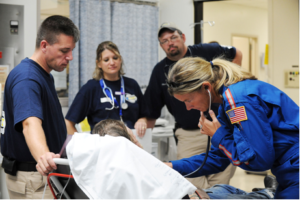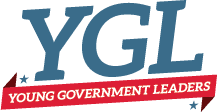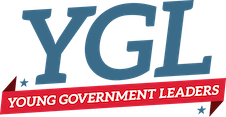
On January 20, 2017, a new U.S. president will be sworn in to lead and govern 325 million Americans. In Washington, D.C., grand celebrations will be held, congratulatory speeches made, and the United States will mark another transition of power in the most powerful country on earth. It’s during these critical points in U.S. history that our country and our new leaders require the unwavering support and expertise of the U.S. government’s roughly 4 million employees to follow through on the collective will of the people.
The Critical, Quiet Role of Public Servants During Elections
Presidential transitions, as significant as they are, do not occur merely because of tradition or the existence of a law. They happen consistently every four years without fail due to the hard work and coordination of legions of dedicated and duty-bound military and civil personnel.
As a nation of laws, the calling and duty of those of us in civil service is to carry out and defend the laws that have shaped our country and bound its citizens since our nation’s birth. And we must do so equally and equitably. It is the very same responsibility the President swears by when he or she takes the oath of office and pledges to uphold the Constitution.
The same will be true at all levels of government across our country. When new governors, representatives, mayors, city council and county board members are elected, civil servants will be called upon to provide continuity in our democratic systems. And year after year, they do so quietly and reliably, often with little notice unless a problem arises.
The responsibility is not without its challenges. Public institutions answer to the people—not to the bottom line. Often, the complexity of laws and rules about how government functions creates bureaucratic inefficiencies of a magnitude only those working in government can truly appreciate, while the occasional problems or failures can create false perceptions of mass incompetence.
But even with these challenges, we know the tradeoffs are completely worth it. Our accountability to citizens ensures that Americans are governed rather than ruled.
And from a career and personal standpoint, the challenges we face do not begin to amount to the rewards of serving others. The promise of an enduring career and the knowledge that we have the ability to leave a positive imprint on the life our country leads many of us to become public servants.
Whether its teaching children at a public school, providing disaster relief, fighting terrorists overseas, or finding a cure for Zika, a passion for service and a way to find purpose has drawn many to serve on behalf of the public.
And like any process or organization, there are many ways to improve our government. Many of us chose public service for the opportunity to bring innovation and excellence to our institutions, work with our communities and stakeholders to develop policies and programs that work properly, and achieve the shared goals and outcomes desired by our communities.
As our country prepares for another transition of power, it is both our privilege and solemn responsibility as public servants to make sure the gears of America’s institutions and systems continue to turn year in and year out—reliably, predictably, and often anonymously. It is our calling, and 325 million Americans are depending on us.
This article was written by Jonathan Ludwig.

